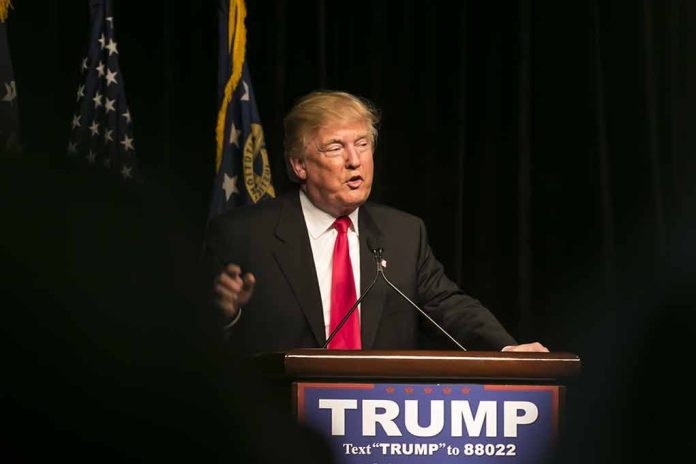
An important agreement between the U.S. and Mexico has emerged, centered on security enhancements along with economic diplomacy, but its success remains to be seen.
Key Takeaways
- The United States delays tariffs on Mexican goods for a month.
- Presidents Claudia Sheinbaum and Donald Trump negotiated the agreement.
- Mexico will deploy 10,000 troops at the U.S. border to combat drug trafficking.
- The U.S. aims to prevent high-powered weapon trafficking to Mexico.
- Security and trade teams from both countries will start collaborating.
The Bilateral Agreement’s Formulation
The recent agreement was forged in discussions between Mexican President Claudia Sheinbaum and U.S. President Donald Trump. They both acknowledged the complexity of issues at play in bilateral relations, particularly concerning security and commerce. Trump described the talks as “very friendly,” which sets a cooperative tone for addressing mutual interests in safeguarding borders and boosting economic ties.
The agreement aims to fortify security at the U.S.-Mexico border, targeting drug trafficking activities. To combat this scourge, Mexico will station 10,000 National Guard troops along its northern border, focusing on intercepting fentanyl and other illegal narcotics. On the economic front, a noteworthy component of the agreement is the one-month deferment of U.S. tariffs on Mexican goods, allowing negotiation time.
A United Front Against Drug Trafficking
Mexico’s initiative to bolster security on its northern border indicates a clear commitment to addressing the drug trafficking issue affecting both nations. By deploying a sizable National Guard force, Mexico aims to significantly disrupt the flow of illicit substances into the United States. In return, the United States has pledged to curb the trafficking of high-powered weapons across the border, further aligning both countries in this joint effort.
The agreement represents a strategic collaboration to not only fortify national security but also to ensure economic stability between the neighboring countries. By synchronizing both security measures and trade discussions, the leaders of the U.S. and Mexico display a proactive approach to handling present challenges, especially those intertwined with cross-border activities. This bilateral cooperation signals potential progress.
Implications of Delayed Tariffs
By delaying tariffs on Mexican imports, the U.S. seeks to provide room for peaceful negotiation and economic stability. Both countries are keen on resolving trade disputes through dialogue rather than escalating tensions. This act of diplomacy reflects an understanding of economic interdependence and the potential advantages inherent in cultivated bilateral relationships.
The decision to postpone tariffs opens a window of opportunity for engaging in constructive negotiations, potentially diffusing prior threats of retaliatory measures. As security and trade experts from both nations commence deliberations, the focus will be on substantive outcomes that can reinforce the agreement’s initial goals. The next month will be decisive in consolidating efforts to tackle the multifaceted challenges at the border.
Sources
1. Trump, Mexican president agree to delay tariffs for one month
2. Mexico president, Trump say US agrees to pause tariffs




